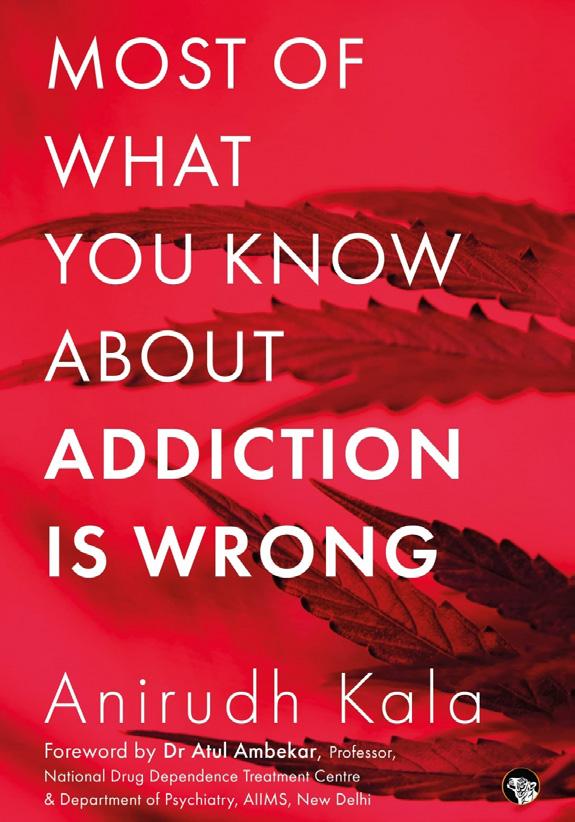
2 minute read
storyteller
world, and most important, what makes it possible.
(Vikas Datta can be contacted at vikas.d@ians.in) concerns of drug addiction and the NDPS Act with reference to the historical context. Indian society, which may not have celebrated the use of psychoactive substances, but nonetheless had space for their use, granting them social acceptance, which in turn kept in check the problem of addiction and the escalated situation of people dying from it. "Usage does not mean addiction," he clarified. "We socialise over drinks but we may not be alcoholics." Explaining further, he emphasised the fundamental human need for an altered state of mind from time to time.
Advertisement
New Delhi, June 18 (IANS)
Rampant addiction to substances may seem like a contemporary problem, but the use of psychotropic intoxicants long predates the awareness of the menace of drug addiction. Dispelling common myths surrounding addiction, and delving into the new understanding of the issue and the menace it has come to be, Dr Anirudh Kala, a Punjabbased psychiatrist, in his third book 'Most of What You Know About Addiction Is Wrong' (published by Speaking Tiger), presents a meticulously detailed, comprehensive and insightful account of the very phenomenon of engaging in psycho-active substances and what leads it to become the menace of addiction. Speaking at the book launch, Kala opened his address with a reminder: "People took opium and were by and large functional. You could have a four-hour-long discussion with someone on politics and be surprised that he is regularly opiated."
The difference, though, is that people are dying from overdose, and getting infected with hepatitis and HIV from shared needles, Kala said, pointing out that jails have a significant number of inmates held for drug-related crimes but these are the people who need treatment and rehabilitation.
Dr Atul Ambekar, a fellow psychiatrist who has also written the foreword to Kala's book, highlighted the "draconian" NDPS Act and how it is not the solution but the major contributor to rampant addiction, which is both a public health concern and a policy matter.
The Narcotic Drugs and Psychotropic Substances (NDPS) Act, 1985, prohibits production, manufacturing, cultivation, possession, sale, purchase, transport, storage, and/or consumption of any psychotropic substance or narcotic drug. Ambekar explained the twin
"It is a common need to periodically want to feel different, as much as a human needs food or sex or sleep. Some people use art, rock climbing, mysticism (for this purpose)," he said, marking a shift from substance to behaviour, both of which could lead to addiction.
"It becomes addiction not from regular use but from its salience -- when a lot of mind space is taken up by the intoxicant," Ambekar emphasised. "Addiction is as much a disease as diabetes or hypertension is."
The experts also highlighted the predisposing factors for addiction: traumatic experiences and genetics are significant determinants of who gets addicted and who doesn't. Contrary to common perception, however, they maintain that mere availability of substances may have an impact on its use, but not on its addiction: "Alcohol is freely available but most Indians are teetotalers."
The problem of drugs is a problem of policy
Ambekar went on to talk about the legality and policy matters surrounding substance abuse and addiction. "When opium was available, there were fewer addicts," he said, adding that "most of the problems related to drugs are a problem of policy matters."
He specifically pointed out three pitfalls of the NDPS Act. The law puts all psychoactive substances in the same category without any distinction based on effect and intensity upon procurement or consumption. Further, it criminalises personal consumption, thereby stigmatising it and, in turn, making it challenging to provide suitable treatment on time and addressing the public health concern at large.
(Kavya Dubey may be reached at kavya.d@ians.in)








